i don't even wanna be around anymore (just kidding)letterboxd: https://letterboxd.com/blog: https://glasshalftrue.wordpress.com/
Last active 3 hours ago
Don't wanna be here? Send us removal request.
Text
a catalog retailer uses physical catalogs, no? that's not "tech". amazon.com, the website, is "tech"; it's primarily known to the public as a way to Buy Things Online. also to answer your initial question i think AWS makes up like more than half of Amazon's revenue so even disregarding this argument they're definitely a tech company
9 American tech companies make up 32% of the S&P 500. These at the top ten highest weighted companies with the exception of Berkshire Hathaway. This makes me wonder if the S&P is really that diversified anymore. but I suppose it is still more diversified than owning 20 stocks that you picked. Don't make financial decisions on the basis of this idle speculation.
39 notes
·
View notes
Text
i mean, Amazon primarily sells things online whereas Sears and Walmart are still (mostly) brick-and-mortar stores, so that's a pretty big difference
9 American tech companies make up 32% of the S&P 500. These at the top ten highest weighted companies with the exception of Berkshire Hathaway. This makes me wonder if the S&P is really that diversified anymore. but I suppose it is still more diversified than owning 20 stocks that you picked. Don't make financial decisions on the basis of this idle speculation.
39 notes
·
View notes
Text
i guess this is a good indicator that i have no idea wtf is on mainstream tv these days
hate how almost every portrayal of a lesbian on mainstream tv is like literally just a straight woman who dates women. the writers clearly don’t care to take Any considerations into lesbian/lgbt culture or what our lives/dating is rly like. like even apart from them all being pretty feminine conventionally attractive white women in their thirties, they are literally always the straightest women you could possibly imagine. what’s the opposite of dykery. The utter dykelessness of these women
84K notes
·
View notes
Text

Population per capita in each U.S.A. state.
5K notes
·
View notes
Text
a woman being feminine is right-wing coded which is masculine coded. a woman being masculine is left-wing coded which is feminine coded. this disproves the existence of women
25K notes
·
View notes
Text
What about history or linguistics?
Okay i kinda do think philosophy is the most serious humanity and it's not particularly close
10 notes
·
View notes
Text
United Healthcare getting sued by its investors, because it didn't warn them that the CEO getting murdered (by the tendrils of their unmitigated greed) was going to lead to them approving more claims (for covered services that they had no right to deny) is a cartoonish example of exactly why their CEO got murdered.
Their argument is essentially "You promised us a specific profit margin that is not possible to achieve under this increased public scrutiny of your unethical practices. We only agreed to invest because of those unethical practices. So we demand compensation because you didn't warn us that you'd be behaving more ethically"
And idk. Satire isn't just dead. We've pissed on its corpse and now it's dissolving in lye.
24K notes
·
View notes
Text
One change made by Watchmen (2009) that's basically a microcosm of everything I dislike about the film. After the reveal that Comedian was Laurie's father, Manhattan espouses the idea that in spite of his search for thermodynamic miracles in contexts devoid of life, his detachment from humanity blinded him to the chain of remarkable circumstances necessary for Laurie to exist; he returns to save earth because Earth produced Laurie, specifically, his ex-girlfriend and superheroine extraordinary.
In the comic, Laurie points out that the unlikelyhood of her own specificity isn't actually less unlikely than the circumstances by which billions of other people came to exist- and that, exactly, is Manhattan's point. He expressly extrapolates this logic to the rest of humanity- Earth is a miracle factory by virtue of being the one place on earth that can support humans, all of whom have the exact same kind of contradictory history and interiority as Laurie, all of which he was paradoxically blinded to due to his power-induced self-absorption.
This, in turn, ties into one of the biggest ideas that the comic has regarding the superhero genre, which is that it's necessarily myopic, because it's very difficult to tell a superhero story that doesn't on some level implicitly buy into the idea that the superhero specifically is uniquely worthy of attention- the world contorts itself around the person who's name is on the cover. Structurally, non-superhero characters in superhero stories find themselves in an orbit; supporting cast members, love interests kept in the dark, civilians to be saved. Cape stories that deliberately defy this dynamic exist- Watchmen itself is one of them!- but are visibly positioning themselves opposite the standard assumptions of the genre by doing so. Many of the other characters embody this myopia. Rorschach's whole opening spiel is about how intellectually and morally elevated he is over the teeming masses, and his mask killer theory is fundamentally motivated by an ego-flattering desire for the neutered institution of costumed heroism to be relevant enough to sit at the center of a widespread conspiracy. Comedian's gleeful amorality is a means of justifying his horrible actions as the work of a man who's fundamentally above and smarter than every convention and concern of the little people. Dan is the most "normal" and in ways the most cynical about the change-making potential of heroism, but when he finds out about Hollis's murder it takes less than a second for him to start throwing his weight around and threatening Comedian-tier atrocities against the entire neighborhood- because Hollis was one of the characters who mattered. And, of course, Ozymandias, who positions himself as above the sophomoric dynamics of traditional superheroism, is nonetheless still pursuing a plan by which he, the Big Man Of History, unilaterally sacrifices countless nameless NPCS in order to trick the rest of the unthinking hordes into behaving themselves, eschewing anything remotely involving collective action. Almost everything untoward that happens in the book can be directly tied to a failure to internalize what Manhattan did- that other people are important. That everyone who gets blown up at the end of issue 11 could have been the subject of a whole comic book themselves.
But in the movie- which, for space, axed most of the supporting cast even in the ultimate cut- Jon's epiphany stops and starts with Laurie. She's not a microcosm of the miraculous phenomena of humanity at large, no, she specifically- a badass superheroine played by a Hollywood starlet- is just so very special and worth saving the planet over. The scene is adapted almost word for word, right up until the part about "you and everyone else." I guess you can infer that bit, given that from there Manhattan is still out to preserve human life in general, but nonetheless the scene now feels like it's reinforcing the exact logic that it was supposed to be arguing against- that only superheroes matter, and that only the interiority of superheroes can move the needle.
276 notes
·
View notes
Text
What falsehoods has he said?
I don't exactly like Sapolsky, in lectures I've seen he's repeated with total confidence certain extremely basic falsehoods about enough topics I actually know something about that I've come to doubt basically everything he says (kind of a David Graeber situation), but if you're gonna do the whole evopsych public intellectual thing he's the most tolerable of the bunch. It seems like he comes at the issue with genuine object-level interest and enthusiasm about how humans think and why they think that way, unlike most of his ilk who seem basically more interested in political posturing than anything else.
12 notes
·
View notes
Text
kids these days are like “i need chat gpt to write an essay that would normally take 12 hours in 2” but back in my day i did that all the time by using a little technique called “writing some absolute bullshit.” and yet i still walked away with a better essay and more critical thinking skills than i would get if i used chatgpt. write a bad essay that you started on the day it was due, but write it yourself.
31K notes
·
View notes
Text
Kinda in love with the idea that different places on other sides of the world can look so similar. Something something universal human experiences
100K notes
·
View notes
Text
"If it's amazing, they'll know."
When talking about "George Lucas' vision" and the original six Star Wars films, there's one thing to bear in mind and that's Lucas' style of filmmaking.
These are movies for kids, designed to emulate the Saturday matinee serial format from the '30s, à la Flash Gordon. You see this most of all in the dialog. But something else you notice is George Lucas' filmmaking style, particularly in how he films and edits.
Take Darth Vader's introduction, for example.
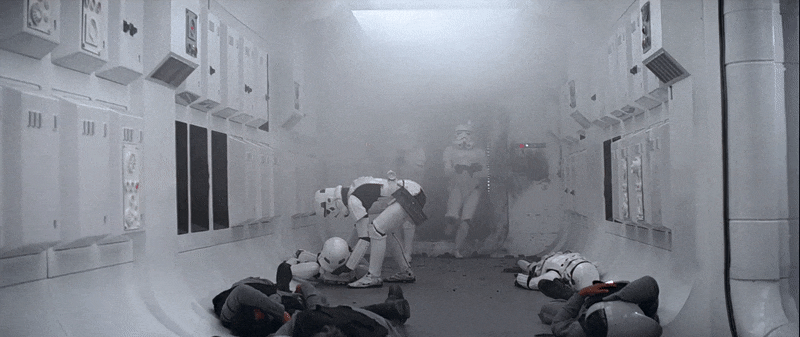
Look at the composition: Vader stands tall, in contrast to the - as the script puts it - "fascist white armored suits of the Imperial stormtroopers". They're all in white, he's all in black, he's bigger badder, emerging from a cloud of smoke. What an entrance.
But if you think about it, it's just a single full shot. Very basic.
Compare this to Kenobi, wherein Vader is treated like a monster out of a horror movie. First, you glimpse his shadow, people reacting...
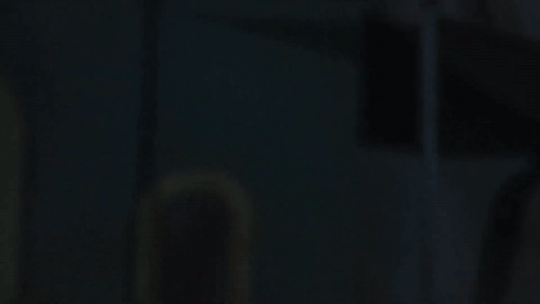
... then ominous bits and pieces like his boots or his lightsaber...
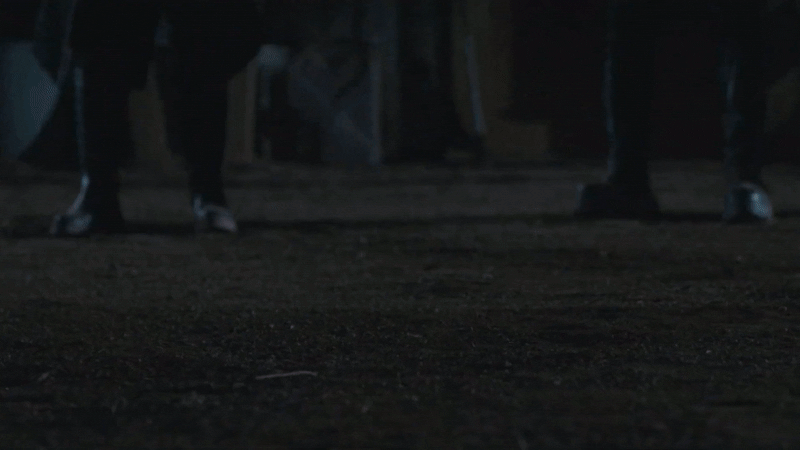
... and finally Vader himself, in all his terrifying glory.

That's a modern way of shooting it and it admittedly makes ol' Darth seem that much more imposing and absolutely badass.
But Lucas comes from a background of editing, experimental filmmaking and used to work as a documentary cameraman.
So what he did is just put the camera down and have Vader walk in. It's a faster yet differently-efficient way to introduce the character. It's more about dynamic pacing and visuals.
And that is Lucas' style. In his words:
"The way these films were put together, they're shot very much like a documentary film and the action of stage, and then I shoot around it. I don't stage for the camera. And as a result, there are a lot of things that happen pretty much by accident. It lends an aura of authenticity to everything." - Star Wars - Episode I: Podracing Featurette, 1999
Another example: the introduction of General Grievous.

A door opens revealing his ugly mug and he walks in. Boom.
But in Star Wars Storyboards: The Prequel Trilogy, you find that - as envisioned by the storyboard artists - our introduction to Grievous would've been very different.
"We wanted to have the introduction to Grievous be a series of really close shots that would be a series of details: his creepy foot, his creepy hand...
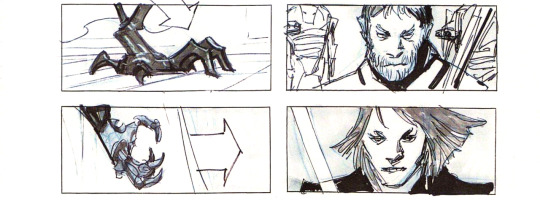
... his scary alien eyes...
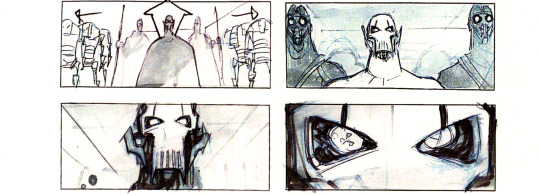
... but George brought up an interesting point. He didn't want the film to concentrate on one design detail or one element— but rather let the world be there and let the viewer find those things without necessarily having it shoved in their face." - Derek Thompson, SW Storyboards: The Prequel Trilogy, 2013

"George nixed the idea, saying: 'I don't want something to be special because of how it's filmed, but because of what it is. Just put the camera on it and let it play out in front of the audience. If it's amazing, they'll know.'" - Iain McCaig, SW Storyboards: The Prequel Trilogy, 2013
That's it in a nutshell. "If it's amazing, they'll know."
The above storyboards look awesome and seeing Grievous be introduced that way would be great... but it wouldn't be Lucas' Star Wars. It would be some other director taking a crack at it.
And this way of shooting can be weird, even boring, at times. I mean compare Mace leading his troops into battle...

... to Aragorn leading his, in Return of the King.

The latter is so much more emotionally impactful. For a number of reasons (eg: Aragorn is a deuteragonist, Mace is a secondary character with less development), but one of them is that the moment is just shot in a way that's more interesting.
First we have an angle on Aragorn as he smiles and charges. Then the rest of the other characters as they react and follow suit, then the troops do the same.
With Mace it's, uh, *checks notes* he flourishes his saber and charges, the clones follow. Hell, for half a second we're looking at just an empty screen.

But y'know what the shot does look like?
It looks like something out of a WW1 documentary.

It's that authenticity he was mentioning further up.
At the end of the day, you can call it campy or bad... it's Lucas' style. It's cinema. There's a logic to it.
"To me, the script is just a sketchbook, just a list of notes, and, sometimes, I prefer the documentary feel of free flow, so I let my instincts tell me where to go. I like to create cinematically; I don't like to have a plan. I like to have a rough idea of what I'm going to do-certain themes, certain issues I'm going to deal with-and then I try to do so." - The Making of Revenge of The Sith, page 116, 2005
He doesn't try to make a character look particularly badass with camera angles or make the shot too choreographed, he just goes with the flow, and makes the deliberate choice to shoot it that way, because for better or for worse... it's his movie.
So yeah, just a tidbit I thought would be interesting.
Edit:
@schilkeman added this very interesting point in the replies:
"He doesn’t stage for the camera, but he does compose for the camera. The documentary style, while somewhat detached, requires the filling of the screen with motion and light. The way things move through frame seem very important to him. These are things his films excel at."
2K notes
·
View notes
Text
ya gotta stop caring what people think and start being extremely weird. but never cruel. i think that might save you
107K notes
·
View notes
Text
yeah, i think it's just way too idiosyncratic and on a per-term basis to make any broad sweeping statements about whether "using adjectives as nouns" is considered "dehumanizing"
Using adjectives as nouns (for the group the adjective refers to) is really convenient so it's unfortunate that this is considered like rude and dehumanizing in 21st century English. Also kind of a stupid norm imo. Like. What does adding "people" really do. We are all aware we are talking about people.
95 notes
·
View notes



